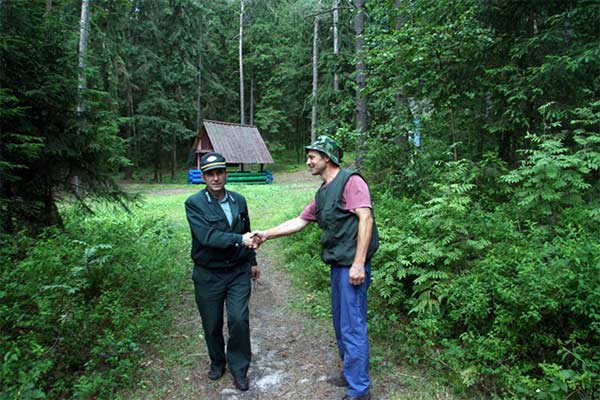

Forest sector is an important element of Belarus national economy and it is set to come under increasing pressure with planned developments in the forest processing sector and a stark increase in the demand for wood energy.
The Belarus Forestry Development Project aims to enhance silvicultural management and reforestation, increase the use of felling residues and improve the public goods contribution from forests in Belarus.
To fund the project the GEF granted $2.74 million under the GEF-6 Sustainable Forest Management (SFM) Program. The GEF grant will accompany $40.7 million in co-finance provided by the World Bank in form of a loan to the Republic of Belarus (World Bank board approval is expected on March 27, 2015).
The World Bank task team leader of the project, Andrew Mitchell, stated that "Belarus' forests offer the country with a resource which can meet the demands of sustainable development through the supply or raw materials for industry as well as a wide range of ecosystem services."
Through its Country Partnership Strategy FY 14-17, the World Bank is providing a large loan to improve the efficiency of the use of forest resources. "The GEF funding is augmenting the loan to ensure sustainability is embedded in the sector and forest ecosystem services are maintained."
The development of the project, from the initial concept to CEO endorsement took only six months, thanks to the joint efforts of the World Bank task team, the Belorus counterparts, and the GEF program managers. The use of a new integrated approach has allowed the team to design the project in an innovative and holistic way.
"The project will have multiple environmental benefits and has been designed using an integrated approach that combines climate change mitigation, biodiversity, and forest management objectives", GEF SFM program coordinator, Ian Gray, noted, "It will enhance the management of biodiversity and forest carbon resources and reinforce the approach that development and environment can be addressed together".
Expected outcomes of the project are improvements of the following: 1) standards and regulations for intensive forest management and further their adoption; 2) forest fire prevention, detection and management; 3) the level of knowledge about pest outbreaks, species dieback and ecological change; 4) the inventory and mensuration capacity to better national level forest data - particularly biodiversity and carbon values – and share them publicly via web.
For more information, please contact the SFM team: Ian Gray, igray@thegef.org, or Ulrich Apel, uapel@thegef.org.